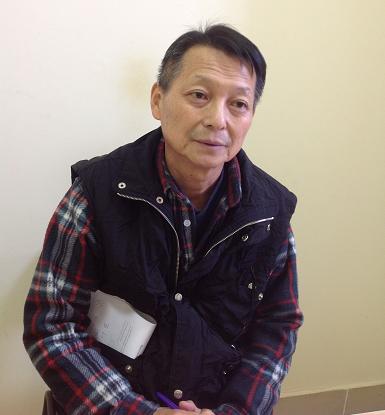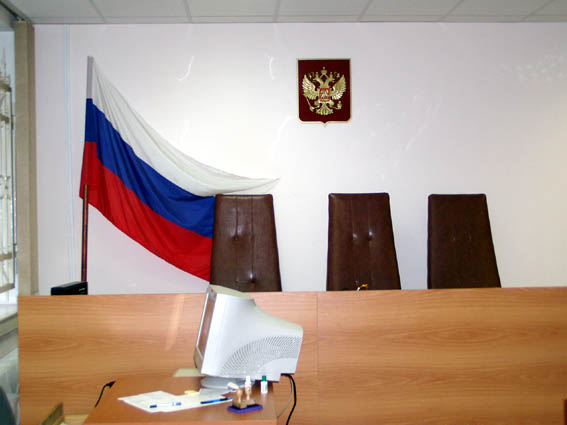
A Protestant pastor and U.S. citizen has been held for months at detention center in Russia. Thomas Tae Kang, a Presbyterian Church pastor, Korean by birth, U.S. citizen, former military chaplain, and now military pensioner, has been held for more than four months in custody on an attempted bribery charge: the bribe, a $30 USD donation he provided in conjunction to a fine he lawfully paid. But a cursory look into the facts surrounding his case show that he was targeted because he provided a place for various Christian ministries to worship.
T. Kang arrived in Russia more than ten years ago, and he has remained here with his family. He had literally fallen in love with Russia, its culture and the Russian people. After obtaining his residence permit, he bought an apartment in Moscow and began to build a house in Zaoksky District, Tula Region, a process that took more than nine years to complete. Upon completion, the house was large and beautiful. T. Kang called it his "House of Joy", and decided he would minister to parents and children from low-income families and the children of soldiers by allowing them to vacation for free at the House of Joy. T. Kang felt this ministry is how he could best serve the Russian people. Even before its official opening, T. Kang placed the humanitarian vacation house at the disposal of Christians in Tula Region for celebrations and prayer services.
The official opening of the House of Joy was scheduled for September 29, 2012. Clergy from all over Russia, as well as from South Korea and the United States, were invited to the opening. A former Defense Minister of South Korea, and now pastor of one of the largest Presbyterian churches in Seoul, was among the invitees who arrived. A total of around 120 guests came.
But on September 28, 2012, the eve of the grand opening of the House of Joy, the Office of the Federal Migration Service (FMS) of the Zaoksky District summoned T. Kang by telephone. Officials of FMS informed T. Kang that one of the three builders of the house, an immigrant from Uzbekistan, had a work permit that had expired several days before and had since been arrested.
Like a law-abiding citizen, T. Kang rushed to the FMS Office where the details of the Russian immigration laws were described to him in the darkest terms, and he was threatened with criminal charges entailing a sentence of two months to two years, a sentence which did not, however, correspond with Russian law. An FMS employee sent T. Kang to the chief of police in the building next door after giving T. Kang a copy of the administrative offense report, which listed a fine of two thousand rubles and bank account information for the payment of the fine. In answer to T. Kang’s question, "Why do I have to go there?" the employee told the presbyter that it was "necessary" and that "they are waiting for you."
A police officer on duty accompanied T. Kang and his assistant Ekaterina F. to the office of the Deputy Chief Captain S., where the conversation revolved first around the Uzbek and then turned to the possibility that T. Kang was himself criminally liable. Assuming by this allegation the officer was trying to extort a bribe, T. Kang told Ekaterina "Let's go" and left the office. In the corridor he gave Ekaterina two thousand rubles and asked her to pay the fine, because he honestly believed that the fine must be paid on the spot, and then he went out to his car.
Captain S. would not, however, take the money from Ekaterina, stating that T. Kang was ignoring him and did not want to talk to him, and he demanded that T. Kang be brought back to the office. Ekaterina came down from the second floor to the street and called T. Kang back to the office. However, he did not want to return, stating that he had nothing more to do there and he was in a rush because there were groceries in the car that could spoil and he had to prepare to meet his guests. Ekaterina reiterated that the officer was insistent that he return. Taking the money back from Ekaterina, T. Kang entered the office where this conversation "about nothing" went into the second round. To put it plainly, he was stonewalled for a total of more than thirty minutes.
Growing tired of meaningless conversation and the hints of criminal liability, the foreigner gave the policeman two thousand rubles (roughly $66USD) to satisfy the fine and another thousand rubles (roughly $33USD) as "an open giving of thanks" (these were his literal words) for the economic needs of the police, in essence a donation to the police. Captain S. glanced at the money and shouted "bribe!" Immediately, the police officers who were standing at the ready behind door ran in and detained the T. Kang. On September 29, 2011, the morning after the initial detention, T. Kang was transferred to Detention center No. 1 of Tula, where to this day, more than five months later, he is being held until his investigation is concluded.
 Thursday, April 4, 2013 at 12:13PM
Thursday, April 4, 2013 at 12:13PM 

